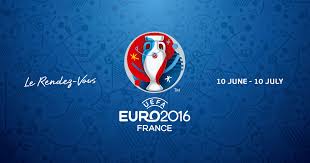By Andrew Warshaw and Samindra Kunti
Portugal, as one of the best third-place finishers in the group stage, may not have won Euro 2016 but for the tournament’s new 24-nation arrangement but Uefa has no intention of scrapping the expanded format – not in the short term at least.
Many have criticised UEFA’s decision to allow eight more countries to take part in the finals, resulting in a somewhat convoluted process of reaching the knockout rounds amid criticism that the tournament had been diluted in quality.
Euro 2016 was the first European Championship with 24 teams participating, up from 16 in Euro 2012. The new format resulted in fairytale runs deep into the knockout phase for both Iceland and Wales, a testament to the development of less traditional nations, but the overall standard of play was low, excruciatingly highlighted by a dour 120 minutes final between hosts France and Portugal in Saint-Denis.
“I think 24 teams are too many,” Germany coach Joachim Low said. “The World Cup’s going to be increased to 40 teams and it’s getting more and more, and that’s a problem in the long term. Sometimes you get the feeling it’s not doing football any good. The quality is suffering.”
“The level at this European Championship was not what we had hoped for,” German defender Mats Hummels said, echoing the sentiments of his coach. “There were many teams who didn’t want to do anything with the ball and just packed men behind the ball.”
That is somewhat disrespectful to the likes of Iceland and Wales and UEFA intend to stick with 24 teams for Euro 2020. “The decision has been made to go for 24 and all the preparations for 2020 are with 24 teams,” said UEFA’s acting general secretary ad interim Theodore Theodoridis. “For 2020, we will go for 24. For 2024, it is wide open and it will be a proposal that is a very interesting discussion because there are pluses and minuses for every format. If you ask me about 32, I am confident that we have more than 32 very competitive teams in Europe. But a format of 32 would kill the qualifiers so it is balance, you have to consider a little bit of everything.”
Despite throwing up a number of fairytale stories, the finals dropped for the first time to below an average two goals per game in the group stage. From a financial standpoint, however, expansion was a no brainer with UEFA expected to make a record profit of €830 million, contributed to in no small part by the increased marketing opportunity of expanding the number of nations present. .
Ironically, of course, it was Michel Platini, serving a FIFA ban until 2019, who came up with the expansion idea and UEFA’s senior vice president Angel Maria Villar, a strong Platini ally, made sure the Frenchman, forced to miss the finals in his own backyard, was not left without recognition.
“France’s hosting of UEFA Euro 2016 is down to one man: Michel Platini,” said Villar, a potential candidate to succeed Platini as UEFA president in the September 14 election even though he is very much part of the old world order. “Michel can be proud, very proud, of his Euro. There are no small teams in Europe anymore.”
Contact the writers of this story at moc.l1751504425labto1751504425ofdlr1751504425owedi1751504425sni@w1751504425ahsra1751504425w.wer1751504425dna1751504425 or moc.l1751504425labto1751504425ofdlr1751504425owedi1751504425sni@i1751504425tnuk.1751504425ardni1751504425mas1751504425.

